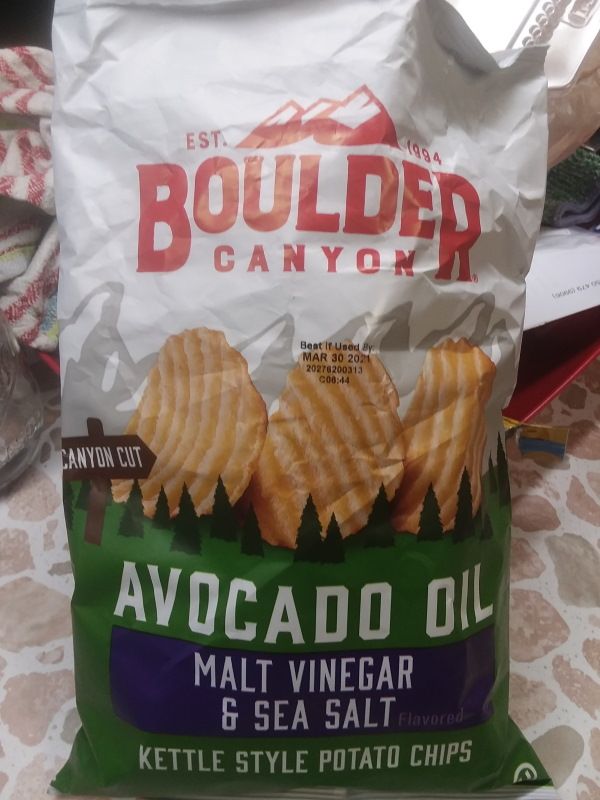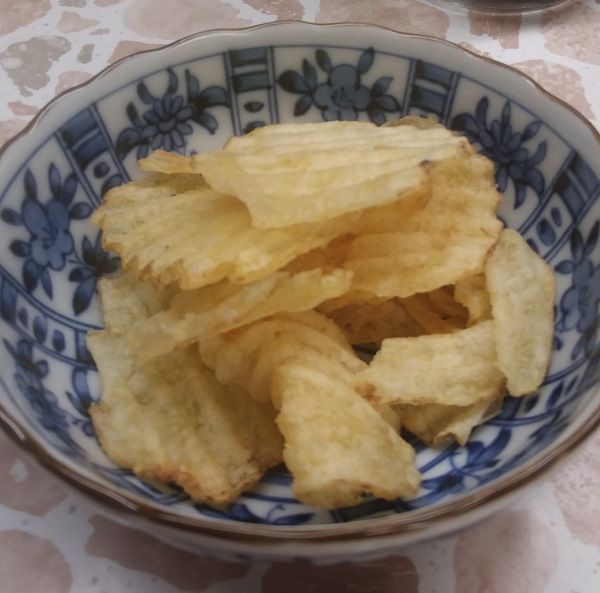Some 40 years later a deluxe version of the album was released
with unreleased songs dragged kicking and screaming from the dusty vaults.
Amongst those songs was "Horse-Hoeing Husbandry", which was also the name
of the name of Jethro Tull the agronomist's book describing one of his
inventions – the horse drawn hoe. Tull's invention apparently made the lives of
farmers much easier as it did a swell job of breaking up the soil and bringing
up weeds.
Tull worked on methods to cultivate the potato and helped
promote root vegetables generally, a worthy endeavor indeed. Staying in the
British Isles, only moving a bit west to Ireland, but fast forwarding to the
mid-1950s, we come to Joe "Spud" Murphy. He was the owner of an Irish
potato chip, er, crisp, company called Tayto and he apparently grew weary of
crisps seasoned only with salt. Tayto ultimately figured out how to season them
and changed the world forever when he introduced cheese & onion seasoned
crisps. Salt & vinegar soon followed.
My guess is that Tayto used the tried-and-true method of
spraying vinegar onto a food starch such as maltodextrin, drying it, before
finally making it into a powder suitable for putting onto crisps. Now we cross
the Irish Sea and fast forward again to 1968 when a Canadian food scientist named
Jim Connell was in England on assignment. His mission changed to inventing a
new way of seasoning salt & vinegar crisps and he did so. He invented sodium
diacetate, a mix of sodium acetate and acetic acid, the latter being the tangy part of vinegar.
Moving ahead 10 years, Jethro Tull the band were out touring
the United States in support of their Heavy Horses album and on 7 November they played the McNichols Arena in Denver,
Colorado. Our final fast forward takes us ahead 16 years and 25 miles or so
outside of Denver to Boulder where Boulder Canyon, maker of malt vinegar & sea
salt chips fried in avocado oil was founded.
I have previously reviewed a different iteration of these chips.
However, that was almost 16 years ago and those were not fried in avocado oil.
For my taste, these were a bit saltier than the last couple
brands I've tried but there were by no means overly salty. The malt vinegar
taste was really good but also rather weak. You'd think a ripple cut chip would
have more surface area to accommodate vinegar dust. For their part, the
potatoes had a really nice, earthy taste that was less sweet than the previous
few chips I've sampled.
I'll be honest here and say that I do not know what frying
in avocado oil is supposed to bring to the table. Will it give chips fried in
it a distinctive taste, even if it's not strong? Or is avocado oil in some way
"healthier"? I guess I need to do more research into frying oils.
As with many other brands, Boulder Canyon's chips taste good
– I really like the potato flavor – but simply need more vinegar tang.


No comments:
Post a Comment